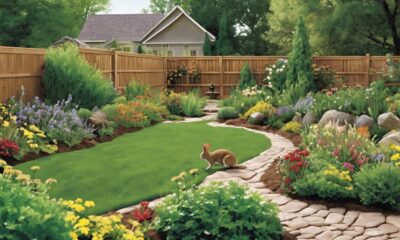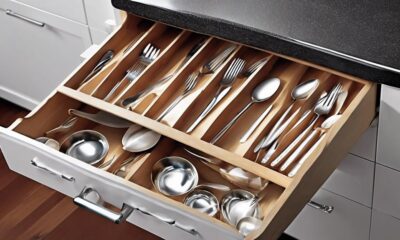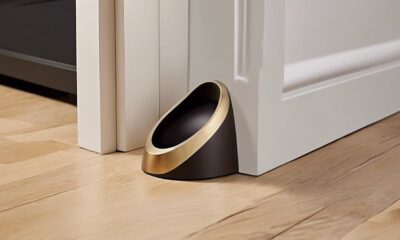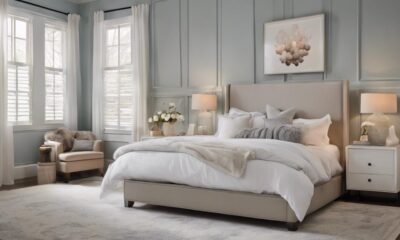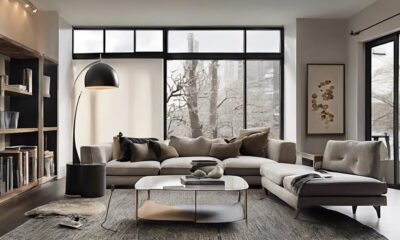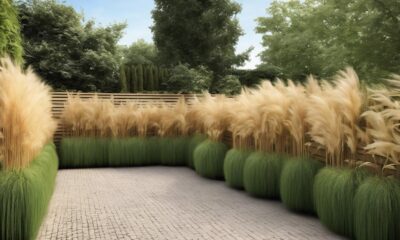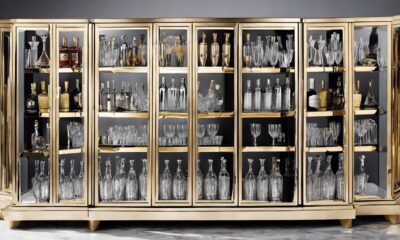Architecture Home Styles
What Kind of House Has a Turret? Exploring Architectural Styles
Peruse the captivating world of architectural styles to discover which type of house features a turret, hinting at the rich history and modern allure awaiting exploration.

Like a crown atop a majestic edifice, a turret adds an air of elegance and intrigue to a house.
As we explore the intricate world of architectural styles, one cannot help but wonder – what kind of house incorporates this captivating feature? As we explore the intricate world of architectural styles, one cannot help but wonder – what kind of house incorporates this captivating feature? Among the many styles, traditional Balinese architecture stands out with its harmonious blend of nature and design. Known for its open spaces, ornate carvings, and spiritual undertones, a Bali house name in Indonesia often reflects cultural values and deep connections to the natural environment. These homes exude tranquility, making them sought after by those seeking serenity and balance.
The answer lies in the rich tapestry of historical influences and modern interpretations that shape the landscape of residential design.
Join us on a journey through time and trends as we unravel the mysteries behind the allure of turrets in various architectural styles.
Key Takeaways
- Turrets are iconic in Queen Anne and Victorian houses, symbolizing wealth and status.
- Ornate design elements like conical roofs and intricate detailing enhance the grandeur of turrets.
- Turrets in French Chateau and Tudor architecture boast round or octagonal shapes with decorative finials.
- Modern turrets blend traditional and modern styles, serving as significant focal points in architectural design.
Turret Definition and Origin
Turrets, originating from the French and Latin words for tower, serve as small vertical projections from walls, historically utilized for defensive purposes in medieval architecture. These architectural elements have transitioned from their defensive roots to become key features in the ornate Victorian style, adding character and charm to buildings. In Victorian homes like those in the Queen Anne style, turrets often boast irregular floor plans and decorative elements reminiscent of crowns, showcasing the craftsmanship and attention to detail characteristic of this era.
When incorporating turrets into modern construction, particularly in Victorian-inspired designs, wood is the primary material of choice. The decision-making process regarding the size, shape, and roof style of turrets plays a crucial role in the overall aesthetic and functionality of the structure. By blending historical influences with contemporary design principles, architects continue to innovate, reimagining turrets in ways that pay homage to their origins while embracing new possibilities in architectural expression.
Gothic Revival Architectural Style

The Gothic Revival architectural style, prominent in the 19th century, intricately incorporated turrets as significant design elements.
- Turrets in Gothic Revival homes were often tall and pointed, reminiscent of medieval castle towers, adding a distinctive flair to the Victorian architecture.
- These turrets served primarily as decorative elements, infusing a sense of drama and historical charm into the overall design.
- Gothic Revival architecture placed a strong emphasis on intricate detailing, such as tracery windows and steep gables, which harmonized with the turrets to create a cohesive aesthetic.
- Often found in churches, grand estates, and mansions, these Gothic Revival turrets epitomized a romanticized interpretation of medieval architecture, showcasing the era's fascination with the past.
The Gothic Revival style's use of turrets not only enhanced the visual appeal of structures but also reflected a broader cultural interest in historical narratives and architectural innovation during the Victorian era.
Queen Anne Architectural Style
Queen Anne architectural style is known for its ornate design elements, such as decorative shingles and wrap-around porches, creating a charming and eclectic appearance.
The inclusion of multiple gables and dormers adds depth and visual interest to Queen Anne houses, showcasing a whimsical and dynamic facade.
Ornate Design Elements
With its intricate details and vibrant colors, the Queen Anne architectural style is renowned for its ornate design elements that exude charm and elegance.
- Turrets in Queen Anne houses resemble crowns, adding a regal touch to the design.
- The asymmetrical facades and decorative trim are distinctive features of this style.
- Irregular floor plans and vibrant colors set Queen Anne architecture apart.
- The combination of architectural influences in Queen Anne houses creates a whimsical appearance.
In Queen Anne architecture, turrets primarily serve aesthetic purposes, enhancing the grandeur and charm of the homes. The ornate design elements, such as turrets and intricate details, contribute to the picturesque and unique character of Queen Anne style houses.
Multiple Gables and Dormers
Nestled atop the multiple gables of Queen Anne architecture, dormers elegantly punctuate the steeply pitched roofs, adding both visual intrigue and practical functionality to the facade.
These dormers, often featuring decorative detailing, provide additional light and ventilation to the upper levels of the house.
In Queen Anne style, the whimsical appearance created by the combination of turrets, multiple gables, and dormers is truly captivating.
Turrets, with their conical roofs and intricate shingles, contribute to the grandeur of the structure, often positioned at corners or projections to enhance the overall charm.
The elaborate ornamentation and asymmetrical design characteristic of Queen Anne houses are further accentuated by the presence of dormers, creating a fairy tale-like aesthetic that continues to enchant admirers of architectural innovation.
Victorian Era Turrets
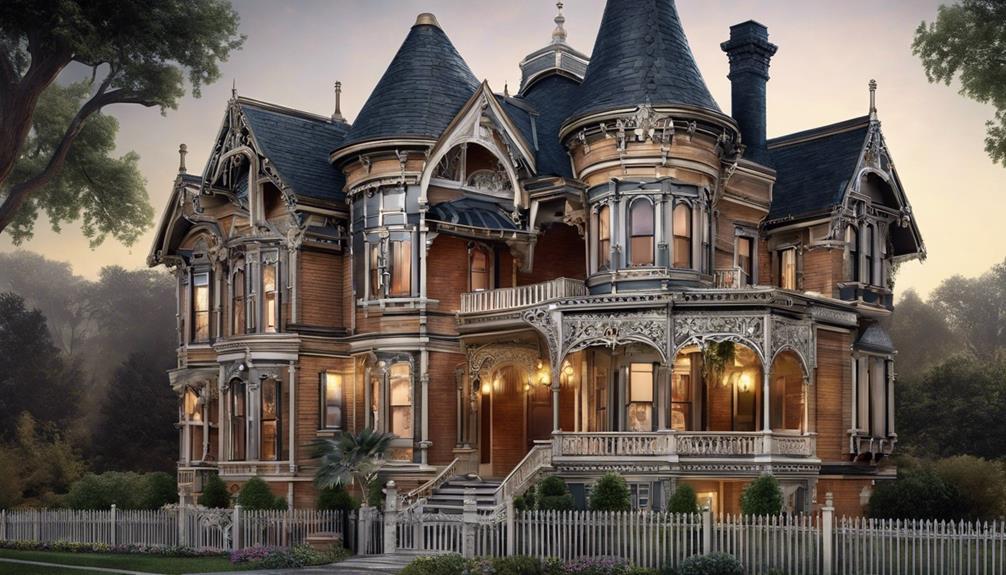
When examining Victorian era turrets, we notice their distinctive conical roofs and intricate decorative elements. These turrets weren't merely architectural additions but symbols of wealth and social standing.
Their incorporation into Queen Anne style houses contributed to the overall opulence and whimsical charm of the structures.
Victorian Turret Design
During the Victorian era, houses adorned with intricate turrets exemplified the opulent architectural style known for its ornamental grandeur and historical allure. Victorian turret design featured:
- Conical or Domed Roofs: Victorian turrets often boasted conical or domed roofs, adding a fairytale-like charm to the overall structure.
- Intricate Detailing: Elaborate carvings, ornate moldings, and intricate patterns adorned the turrets, showcasing the craftsmanship of the era.
- Decorative Elements: Finials and corbels were commonly incorporated into the turret design, enhancing the aesthetic appeal and visual interest of the architectural feature.
- Aesthetic Contribution: Turrets in Victorian architecture served primarily aesthetic purposes, enhancing the picturesque and elaborate look of Victorian houses.
Turret Symbolism in Victorian Architecture
In Victorian architecture, turrets symbolize wealth and status, prominently featured in the opulent homes of the affluent during that era. These ornate structures served as a testament to the prosperity and social standing of the homeowners, showcasing their ability to afford such elaborate design elements.
Inspired by medieval architecture, Victorian era turrets added a touch of romanticism and historical charm to the houses, embodying the intricate and decorative nature of the period's design style. Unlike their medieval counterparts used for defensive purposes, turrets in Victorian architecture were primarily ornamental, enhancing the grandeur and aesthetic appeal of the homes.
The elaborate detailing and craftsmanship of these turrets contributed to the overall opulence and sophistication of Victorian house architecture, capturing the essence of the era's lavishness.
Turrets in Tudor Architecture

Tudor architecture showcases turrets that are distinctively square or octagonal in shape, serving as ornamental features rather than utilitarian structures. These turrets add a touch of elegance and charm to Tudor-style houses, enhancing their visual appeal while reflecting the intricate craftsmanship of the era.
Here are four key characteristics of turrets in Tudor architecture:
- Architectural Ornamentation: Turrets in Tudor houses are adorned with intricate brickwork, often featuring decorative patterns and embellishments that highlight the attention to detail prevalent in this architectural style.
- Half-Timbered Facades: The combination of turrets with half-timbered facades is a common feature in Tudor architecture, creating a striking contrast between the exposed wooden framework and the solid masonry of the turret.
- Steeply Pitched Roofs: Tudor turrets are typically capped with steeply pitched roofs, adding verticality to the structure and further contributing to the overall aesthetic appeal of the house.
- Aesthetic Contribution: Beyond their decorative function, Tudor turrets play a crucial role in enhancing the picturesque and charming appearance of these architectural gems, making them stand out as unique and visually captivating structures.
French Chateau Turret Designs
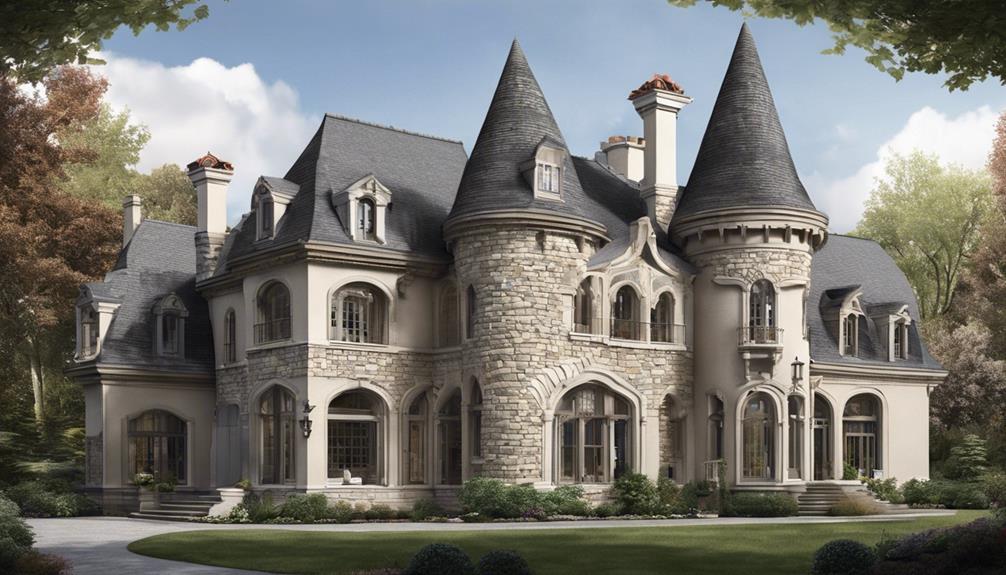
French Chateau turret designs captivate with their conical or octagonal shapes adorned with intricate detailing, drawing inspiration from the elegance of French chateaus.
These turrets, boasting pointed roofs, finials, and ornate windows, exude sophistication and romance, elevating a home's architectural allure.
Commonly found in opulent residential properties, these historical designs reflect the grandeur and opulence associated with French architectural heritage.
Turret in French Architecture
Elegantly crafted and intricately adorned, the turrets found in French Chateau architecture exude a sense of grandeur and sophistication that defines the historical opulence of aristocratic estates.
- French Chateau turrets often feature round or octagonal shapes, adding visual interest to the overall design.
- These turrets are embellished with decorative elements such as finials, corbels, and intricate stonework, showcasing the artistry of French craftsmanship.
- The presence of turrets in French Chateau architecture provides a distinctive and noble character, symbolizing the wealth and status of the aristocracy.
- The design of these turrets reflects the opulence and historical influence of French aristocratic estates, contributing to the allure and elegance of the architectural style.
Ornate Chateau Turrets
With a focus on intricate design and ornate details, Chateau turrets exemplify the pinnacle of architectural elegance and sophistication. French Chateau turret designs are renowned for their ornate features, including finials, spires, and elaborate stonework, which enhance the overall aesthetic appeal of the structure.
These turrets often sport conical or domed roofs, adding to their fairy-tale-like appearance. Beyond their stunning beauty, French Chateau turrets serve both aesthetic and functional purposes, acting as visual focal points while conveying a sense of grandeur.
The intricate craftsmanship and opulent details of these turrets not only reflect the luxury associated with French architectural styles but also highlight the rich historical and cultural significance of these iconic structures.
Historical Chateau Designs
Historical Chateau designs showcase the evolution of architectural creativity and stylistic influences, particularly exemplified in the intricate French Chateau turret designs.
French Chateau turret designs often feature round or octagonal turrets with conical roofs, adding a distinctive touch to the overall structure.
Inspired by the grandeur of French Chateau architecture, these turrets bring a sense of elegance and historical charm to the building.
Decorative elements like corbels, finials, and ornate windows are commonly incorporated into French Chateau turret designs, enhancing their aesthetic appeal.
While turrets in French Chateau designs aren't typically used for defense, they play a crucial role in elevating the architectural sophistication of the building, creating a visually captivating and culturally rich environment.
Spanish Colonial Turret Features

In Spanish Colonial architecture, turrets are distinguished by their stucco exteriors, red-tiled roofs, and distinctive square or octagonal shapes. These structures often feature decorative wrought-iron elements such as railings and window grilles, adding a touch of elegance to the overall design. Arched windows and terra cotta accents are also common characteristics of Spanish Colonial turrets, contributing to their unique aesthetic appeal.
The design of Spanish Colonial turrets is a fascinating blend of European and indigenous influences, showcasing a rich cultural tapestry. The stucco exteriors provide a sense of durability and authenticity, while the red-tiled roofs not only add a pop of color but also offer a nod to the traditional roofing materials used in Spanish architecture.
Modern Turret Interpretations
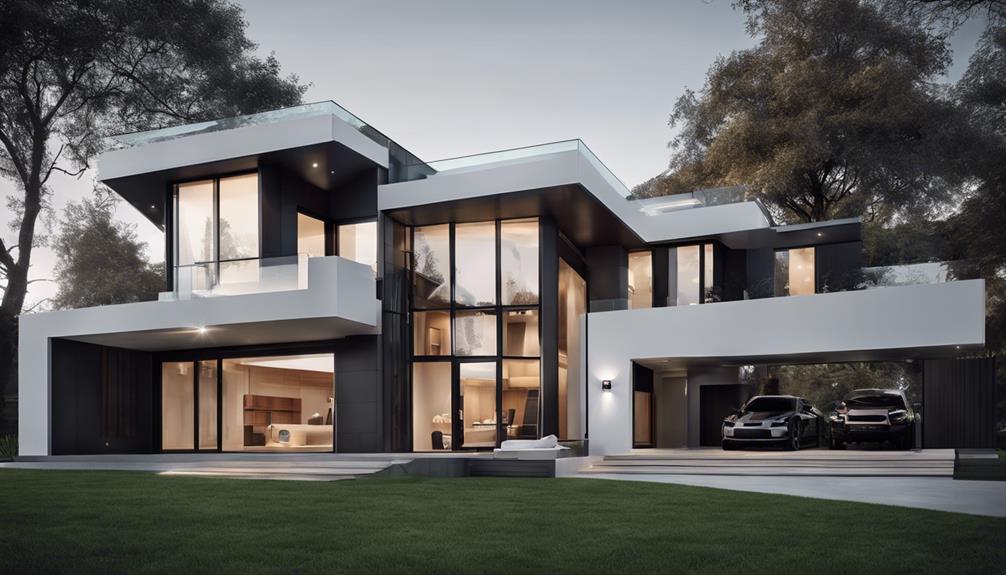
Modern homes often integrate modern turret interpretations as architectural focal points, emphasizing aesthetic appeal over historical defensive functions. When exploring modern turret designs, it becomes evident that contemporary architects are blending traditional turret features with innovative architectural styles, creating unique and eye-catching elements in home design.
Here are four key aspects to consider when examining modern turret interpretations:
- Design Focus: Modern turrets in architecture are primarily focused on enhancing the overall visual appeal of a house rather than serving a practical purpose.
- Architectural Focal Points: Turrets in modern houses act as significant focal points, drawing attention and adding character to the building's exterior.
- Blend of Styles: Contemporary turret designs skillfully combine traditional turret elements with modern architectural trends, resulting in a harmonious and striking aesthetic.
- Variety in Shapes: Modern turrets come in various shapes, including cylindrical, conical, and polygonal forms, showcasing the versatility and creativity of architectural design in the present day.
Italianate Turret Influences

Italianate architecture, known for its elegant and Mediterranean-inspired design elements, showcases distinctive turret influences reminiscent of Italian villa aesthetics. Turrets in Italianate houses are often round or square in shape, adding a touch of elegance and Mediterranean flair to the overall design. These turrets may feature decorative elements like corbels and brackets, further enhancing the visual appeal of the structure. It is common to find Italianate turrets in Victorian-era homes throughout the United States, where they serve as architectural focal points and contribute to the grandeur of the residence.
| Turret Influences in Italianate Architecture |
|---|
| Influenced by Italian villa designs |
| Often round or square in shape |
| Decorative elements like corbels & brackets |
| Common in Victorian-era homes |
Italianate turrets not only provide a nod to Italian architectural traditions but also offer a unique and eye-catching feature that sets these homes apart. The combination of historical influence and ornate detailing makes Italianate turrets a distinctive aspect of Victorian-era architecture.
Contemporary Turret Designs

Exploring the evolution of architectural styles, we now shift our focus to the contemporary interpretations of turret designs, where sleek lines and minimalist details characterize the current trends.
- Contemporary turret designs often prioritize functionality over historical ornamentation, blending seamlessly with modern architecture styles like mid-century modern or Scandinavian.
- Modern turret designs focus on maximizing natural light and energy efficiency, incorporating sustainable elements for environmentally conscious homeowners.
- These turrets can serve as striking focal points in both urban and suburban homes, adding a touch of sophistication and uniqueness to the overall design.
- The integration of contemporary turret designs reflects a shift towards clean, practical aesthetics that complement the needs of today's homeowners, emphasizing both style and usability.
Frequently Asked Questions
What Style House Has a Turret?
When it comes to houses with turrets, various architectural styles embrace this feature. Turrets are commonly found in Victorian, Gothic Revival, French Chateau, Tudor, and even modernist buildings.
These structures use turrets to add drama, elegance, grandeur, charm, and unique focal points, respectively. Each style creatively incorporates turrets to enhance the overall aesthetic appeal of the house, showcasing a blend of tradition and innovation in architectural design.
What Is a Turret in Architecture?
We see turrets in architecture as small towers that can add elegance and charm to a building. Initially used for defense, turrets have transformed into ornamental structures that enhance the aesthetic appeal of modern homes.
Their various shapes – round, square, or octagonal – offer a unique architectural style. Today, turrets are mainly decorative, contributing to the charisma and individuality of a house.
Do Tudor Homes Have Turrets?
Tudor homes typically don't have turrets due to their distinctive timber framing and steeply pitched roofs. Instead, turrets are more commonly found in architectural styles like Victorian, Gothic Revival, and French Chateau.
Tudor homes are known for their asymmetrical designs, decorative half-timbering, and tall, narrow windows, emphasizing a cozy, traditional aesthetic that doesn't traditionally include turrets. However, turrets can be added for a unique touch or modern interpretation.
What Is a Turret on an English Cottage?
Sure thing!
When we think about a turret on an English cottage, we envision a charming architectural feature that adds a touch of whimsy and elegance. These turrets are more about aesthetics than defense, often showcasing unique shapes like conical roofs or small balconies. They bring character and a romantic feel to the cottage, blending traditional elements seamlessly.
It's fascinating how such a small addition can transform the overall look and feel of the cottage.
Conclusion
As we journeyed through the diverse architectural styles featuring turrets, we discovered a metaphorical tapestry of history and design.
Like a tapestry woven with threads of tradition and innovation, turrets stand as timeless symbols of architectural craftsmanship and creativity.
Each turret, with its unique shape and style, adds a touch of elegance and charm to a house, creating a visual masterpiece that captures the imagination and leaves a lasting impression on all who behold its beauty.
- About the Author
- Latest Posts
Introducing Ron, the home decor aficionado at ByRetreat, whose passion for creating beautiful and inviting spaces is at the heart of his work. With his deep knowledge of home decor and his innate sense of style, Ron brings a wealth of expertise and a keen eye for detail to the ByRetreat team.
Ron’s love for home decor goes beyond aesthetics; he understands that our surroundings play a significant role in our overall well-being and productivity. With this in mind, Ron is dedicated to transforming remote workspaces into havens of comfort, functionality, and beauty.
Architecture Home Styles
How to Choose Good Shingles for Your Roof
Curious about how to choose the best shingles for your roof?
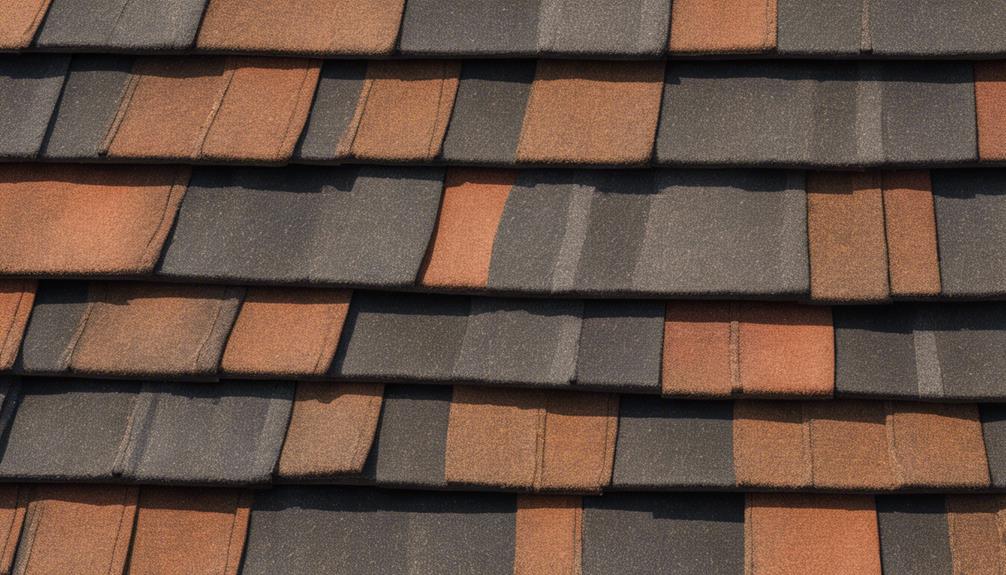
When selecting quality shingles for your roof, the choices may initially appear daunting.
However, with careful consideration and expert advice, we can help you navigate the process smoothly.
By understanding the nuances of factors like durability, style, budget, and material types, you can make an informed decision that not only enhances your home's aesthetics but also ensures long-lasting protection.
Let's explore the world of shingles together and uncover the key elements that will guide you towards selecting the perfect fit for your roof.
Key Takeaways
- Consider climate, architecture, and durability when choosing shingles.
- Shingle durability is crucial for long-term roof protection and cost savings.
- Select shingle style that complements your home's architecture and enhances curb appeal.
- Opt for metal shingles for superior durability, longevity, and energy efficiency.
Factors to Consider Before Choosing Shingles
When selecting shingles for your roof, it's crucial to carefully assess various factors to ensure optimal performance and longevity. The climate and weather conditions of your area play a significant role in determining the type of shingles that will best suit your needs. Different shingles are designed to withstand specific elements, so it's essential to choose ones that can endure the challenges posed by your local climate.
Additionally, considering the architectural style of your home is vital when selecting shingles. The shingles shouldn't only provide protection but also enhance the overall aesthetic appeal of your house. Whether your home has a modern, traditional, or contemporary design, there are shingle options available to complement its architectural style beautifully.
Importance of Shingle Durability
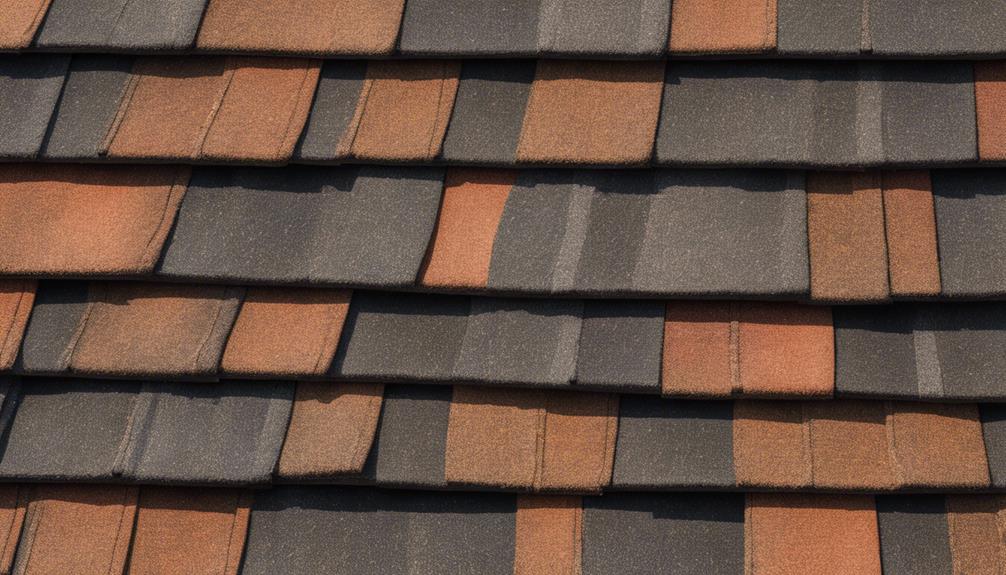
Ensuring the durability of shingles is paramount for safeguarding your roof against the rigors of varying weather conditions and maintaining long-term structural integrity. Shingle durability is a cornerstone of long-term roof performance, protecting against elements like high winds, heavy rain, and hail.
Investing in durable roofing materials such as asphalt or metal can significantly enhance the longevity of your roof, reducing the need for frequent replacements. High-quality shingles not only contribute to the overall lifespan of the roof but also save money in the long run by minimizing maintenance and replacement costs.
How to Select Shingle Style
When choosing a shingle style, it's essential to consider the color selection, material durability factor, and roof style compatibility.
Opting for a color that complements your home's exterior can enhance its overall appeal. Additionally, ensuring the shingle material is durable enough to withstand your local weather conditions is crucial for long-term performance.
Compatibility with your roof's architectural style can tie everything together for a cohesive and visually pleasing look.
Shingle Color Selection
Shingle color selection plays a crucial role in enhancing a home's overall aesthetic appeal and visual impact on its exterior appearance. The chosen shingle color can affect up to 40% of the home's exterior look, making it a significant decision.
When selecting a shingle color, it's essential to consider the architectural style of the house. The color should complement the home's style, harmonizing with its surroundings to create a cohesive look. Additionally, climate considerations come into play; for humid climates, light-colored shingles are recommended for their reflective properties and potential energy efficiency benefits.
Material Durability Factor
To select the right shingle style based on material durability, we must carefully assess the lifespan and resistance factors of various shingle materials available in the market. When considering durability, impact resistance, and fire resistance, the following factors should be taken into account:
- Asphalt shingles lasting 20 years
- Rubber or plastic shingles lasting 22 years
- Metal roof panels lasting 55 years
These aspects are crucial in determining the longevity and resilience of your roof against external elements. By prioritizing these factors, you can ensure a durable and long-lasting shingle style that meets your specific needs and preferences for your home.
Roof Style Compatibility
Considering the pitch and style of your roof is essential when selecting the most suitable shingle style to ensure both functionality and aesthetics are harmoniously achieved. Roof style compatibility plays a crucial role in enhancing the overall curb appeal of your home.
Matching the architectural design of your house with the right shingle style, such as 3-tab, architectural, or luxury shingles, can elevate the visual appeal while providing the necessary protection. Each shingle style offers unique characteristics in terms of durability and aesthetics, allowing you to personalize your roof based on your preferences.
Budgeting for Shingle Selection
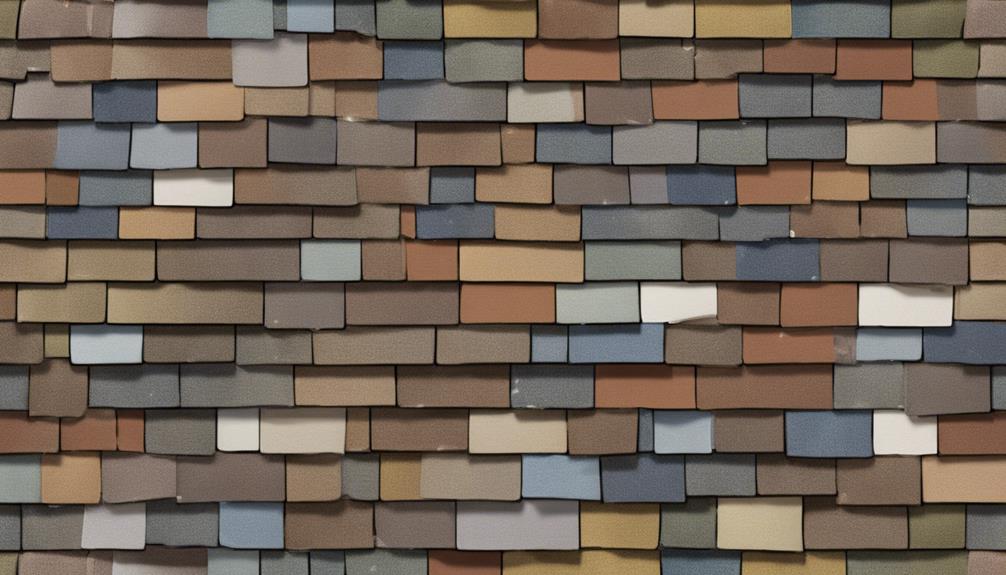
When planning your roofing project, it's crucial to set a clear budget that accounts for the varying costs associated with different types of shingles. Here are some key factors to consider when budgeting for your shingle selection:
- Cost per Square Foot: Determine your budget based on the cost per square foot, which can range from $4 to $30 depending on the type of shingles you choose.
- Lifespan vs. Budget: Consider the lifespan of the shingles in relation to your budget. Some options last 20 years, while others can endure for over 100 years, impacting your long-term cost.
- Installation Expenses: Factor in the installation cost and any additional materials needed when budgeting for your shingle selection. This ensures you have a comprehensive view of the total project cost.
Understanding Asphalt Shingle Types

Asphalt shingles, a common roofing material, are available in three main types: 3-tab, architectural, and luxury, each offering unique aesthetics and levels of durability.
3-tab shingles, the most cost-effective option, have a shorter lifespan compared to architectural and luxury shingles.
Architectural shingles are highly favored for their durability and diverse appearance, often resembling wood shakes or featuring a random pattern.
On the other hand, luxury shingles stand out as the premium choice, emulating the look of slate and typically being the most expensive among asphalt shingle types.
Homeowners can select from these distinct asphalt shingle varieties based on their budget constraints and aesthetic preferences.
The flexibility in performance benefits provided by each type allows for a tailored roofing solution that combines both durability and visual appeal, ensuring a long-lasting and visually pleasing roof for your home.
Exploring Composite Shingle Options
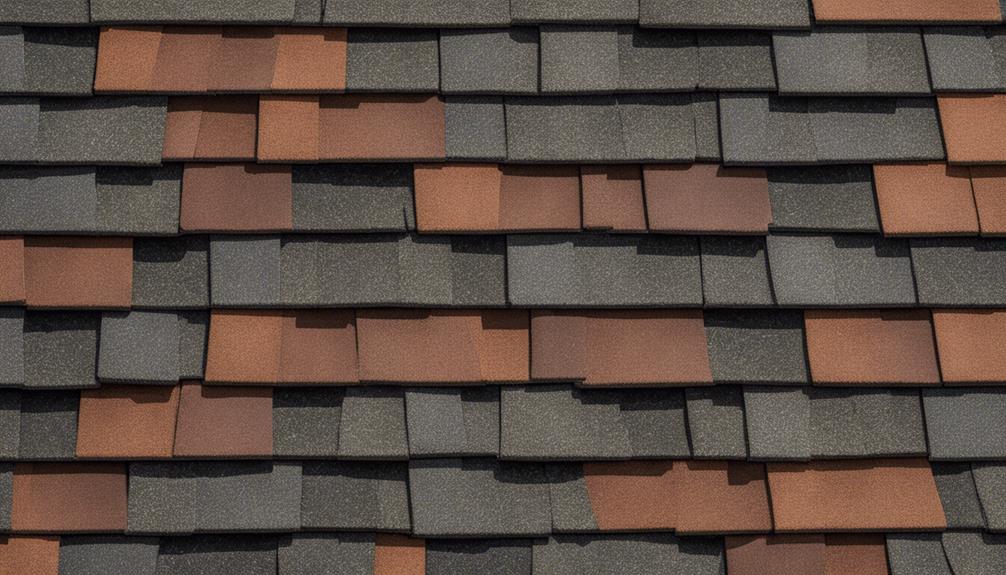
Moving beyond the realm of asphalt shingles, a compelling option to consider for your roofing needs is exploring the diverse world of composite shingle options. These innovative roofing materials offer a range of benefits that cater to both environmental concerns and aesthetic preferences. Here are three key aspects to consider when exploring composite shingle options:
- Eco-friendly: Composite shingles are crafted from recycled materials like rubber and plastics, making them a sustainable choice for environmentally conscious homeowners.
- Authentic Appearance: Despite being eco-friendly, composite shingles don't compromise on style. They can replicate the look of cedar shake or slate tiles, providing a variety of aesthetic choices to enhance your home's curb appeal.
- Durability and Longevity: These shingles are designed to withstand various weather conditions while maintaining their authentic appearance. Their durability ensures a long-lasting roofing solution that combines both style and sustainability.
Consider the versatility and eco-friendly nature of composite shingles when selecting the perfect roofing material for your home.
Benefits of Metal Shingles
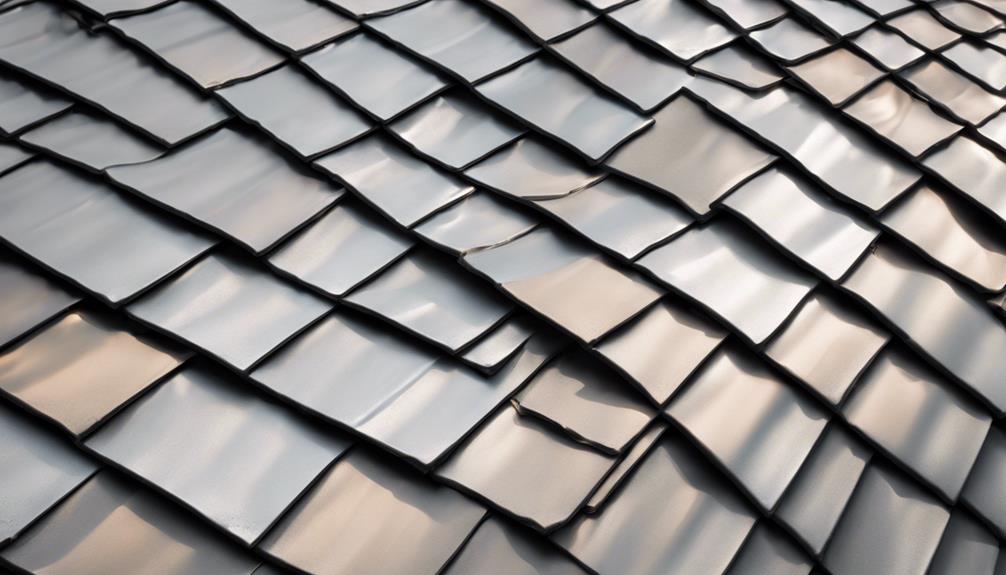
Metal shingles offer exceptional durability, with a lifespan of 40-70 years on average, making them a long-term roofing solution. They aren't only resistant to extreme weather conditions like high winds and hail but also provide energy efficiency, reflecting sunlight to keep homes cooler.
With their fire-resistant properties and eco-friendly recyclability, metal shingles are a sustainable choice that combines longevity, protection, and environmental consciousness.
Durability of Metal Shingles
With a lifespan of up to 50 years, metal shingles offer unparalleled durability and protection for your roof, making them a superior choice for homeowners seeking long-term security.
When considering the durability of metal shingles, here are some key points to keep in mind:
- Highly resistant to fire, rot, and pests, ensuring a secure roofing solution.
- Higher wind resistance compared to traditional asphalt shingles, ideal for areas prone to strong winds.
- Lightweight yet strong, reducing the structural load on your home while offering excellent durability.
Metal shingles not only provide exceptional longevity but also deliver peace of mind knowing your roof is well-protected against various elements, making them a top choice for innovative homeowners.
Energy-Efficient Roofing Option
An energy-efficient roofing option that stands out for its ability to reflect solar heat and reduce cooling costs is the durable and fire-resistant metal shingles. Metal shingles are designed to reflect the sun's rays, which can significantly lower energy bills by up to 25% by keeping your home cooler during hot weather.
These shingles aren't only energy-efficient but also long-lasting, with a lifespan of 40-70 years, reducing the need for frequent roof replacements. In addition to their energy-saving benefits, metal shingles provide enhanced safety as they're fire-resistant, offering added protection for your home.
Furthermore, opting for metal shingles is environmentally friendly, as they're recyclable, making them a sustainable choice for your roofing needs.
Considerations for Slate Shingle Installation
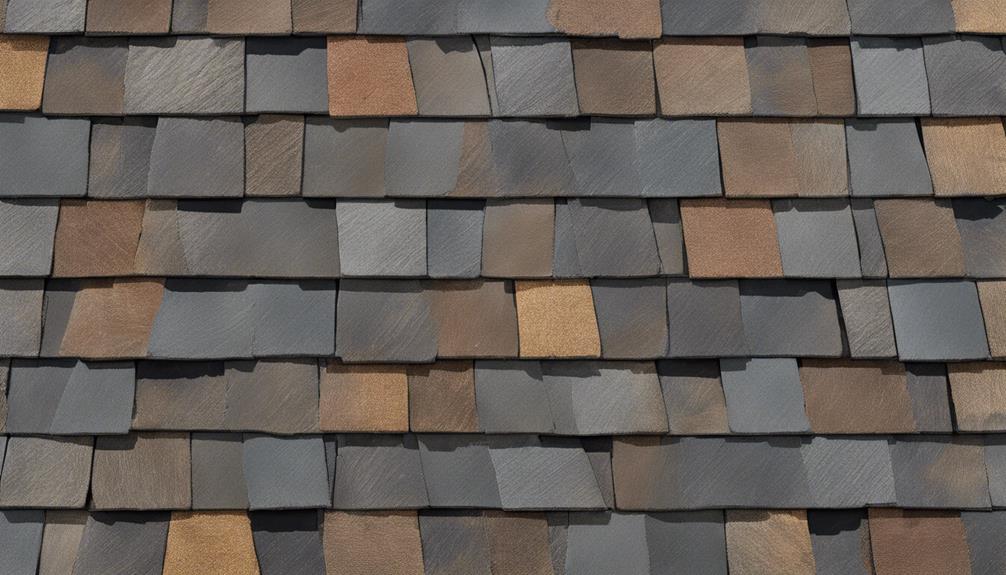
When considering the installation of slate shingles, it's crucial to assess the durability of your roof support system due to the fragility and weight of these premium-quality materials. Slate shingles, crafted from naturally mined slate, are renowned for their durability and longevity, making them a desirable choice for roofing. Here are three essential considerations for slate shingle installation:
- Structural Integrity: Ensure your roof's support system can handle the weight of slate shingles as they're heavier compared to other roofing materials.
- Professional Installation: Due to the material's unique characteristics, it's advisable to hire experienced professionals familiar with slate shingle installation to ensure a proper and long-lasting setup.
- Maintenance Requirements: Understand that while slate shingles have a long lifespan, they require periodic maintenance to uphold their integrity and prevent any potential issues.
Careful planning and attention to detail during the installation process will help maximize the benefits of choosing slate shingles for your roof.
Tips for Choosing the Right Shingles
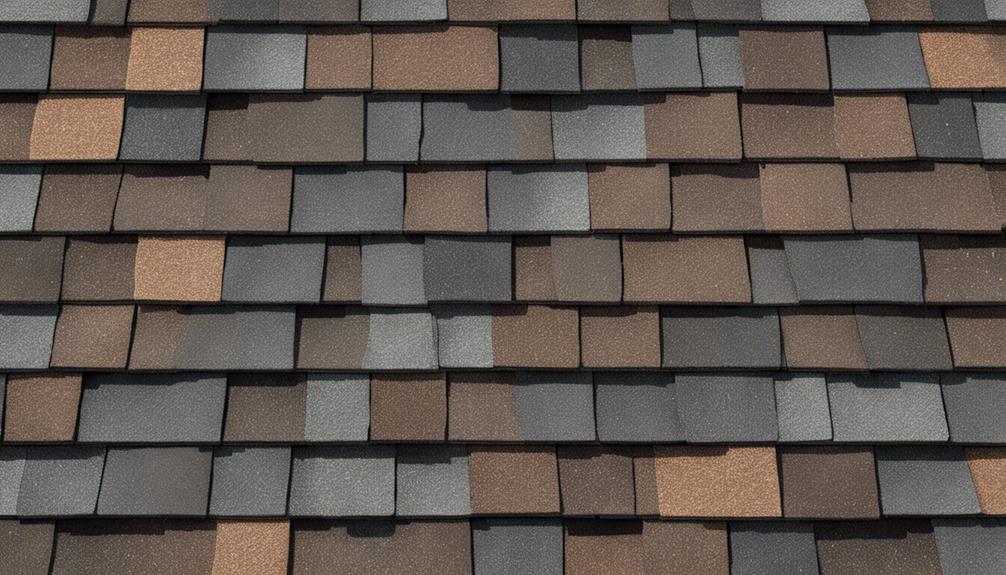
Exploring the diverse range of shingle options available allows homeowners to make informed decisions based on their specific needs and preferences. When selecting the right shingles for your roof, consider the benefits of asphalt, composite, and cedar shake materials. Asphalt shingles are a popular choice due to their affordability, ease of installation, and variety of colors. Composite shingles offer durability and low maintenance, making them a practical option for many homeowners. Cedar shake shingles provide a natural, rustic look and excellent insulation properties, but they may require more upkeep.
To choose the best shingles for your home, evaluate factors such as longevity, weather resistance, and aesthetic appeal. Assess the cost of materials and installation to ensure they fit within your budget. It's also essential to consider the climate conditions in your area to select shingles that can withstand the elements. Seeking advice from roofing professionals and comparing warranties from different manufacturers will help you make an informed decision that enhances the curb appeal and functionality of your roof.
Frequently Asked Questions
How Do I Choose the Best Shingles for My Roof?
When choosing the best shingles for your roof, we consider various factors like climate, aesthetics, and durability. It's crucial to match the shingles' wind resistance, color, and style with your home's needs.
Reflective shingles can also enhance energy efficiency in hot climates. Consulting with professionals can provide valuable advice tailored to your specific requirements.
Which Brand of Roofing Shingles Is Best?
When deciding on the best brand of roofing shingles, it's essential to consider factors like:
- Durability
- Weather resistance
- Material innovation
Brands like GAF, Owens Corning, CertainTeed, Atlas, Malarkey, IKO, and Tamko offer a variety of shingle options tailored to different needs and preferences. Each brand has its strengths, so it's crucial to research and compare their features to determine which one aligns best with your roofing requirements. These companies are often regarded as some of the best shingle brands for roofing due to their commitment to quality, durability, and innovative designs. Many homeowners and contractors rely on these brands for their proven performance and wide range of style and color options. By understanding the unique benefits each brand offers, you can make a more informed decision to ensure your roof stands the test of time.
What Grade of Shingle Is the Best?
When it comes to shingles, the best grade stands out for its superior quality and enhanced features. Premium or luxury shingles offer top-notch durability, extended lifespan, and advanced aesthetics.
Opting for high-grade shingles not only elevates your home's value but also brings long-term cost savings. From impact resistance to enhanced warranty coverage, these top-tier options provide unmatched benefits for a reliable and stylish roofing solution.
Should the Roof Be Darker or Lighter Than the House?
When choosing the roof color, consider if it should be darker or lighter than the house.
In warmer climates, a lighter roof can reflect heat, reducing cooling costs. Conversely, in colder climates, a darker roof can absorb heat, aiding in heating the home.
Harmonizing the roof color with the house's exterior and architectural style is crucial for a cohesive look.
Consulting with local roofing contractors can provide valuable advice tailored to your specific climate and home design.
Conclusion
In conclusion, selecting the right shingles for your roof is like choosing the perfect outfit for your home. Consider the climate, durability, style, and budget to ensure a long-lasting and visually appealing roof.
With options like asphalt, composite, metal, and slate shingles available, there's a perfect match for every home. Trust in quality materials like GAF shingles and consult with professionals to make the best choice for your roofing needs.
Your roof deserves nothing but the best!
- About the Author
- Latest Posts
Introducing Ron, the home decor aficionado at ByRetreat, whose passion for creating beautiful and inviting spaces is at the heart of his work. With his deep knowledge of home decor and his innate sense of style, Ron brings a wealth of expertise and a keen eye for detail to the ByRetreat team.
Ron’s love for home decor goes beyond aesthetics; he understands that our surroundings play a significant role in our overall well-being and productivity. With this in mind, Ron is dedicated to transforming remote workspaces into havens of comfort, functionality, and beauty.
Architecture Home Styles
How a Person Can Live in a Barn: A Step-by-Step Guide
Nurture your curiosity as we unveil the secrets of transforming a barn into a livable space, blending preservation with innovation.
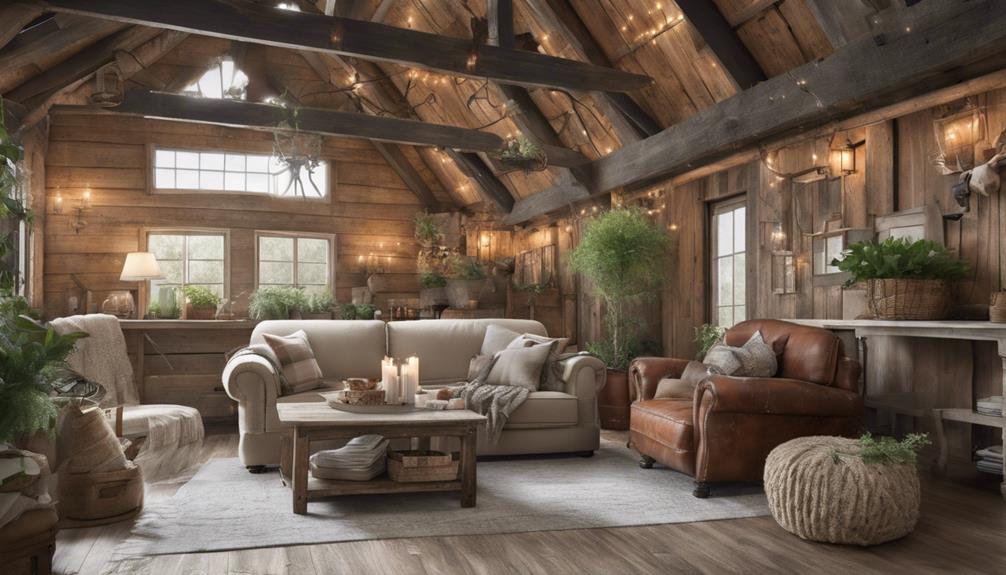
When starting the process of converting a barn into a usable living area, it is important to carefully weigh the delicate balance between preserving its original charm and incorporating modern innovations.
Striking this delicate equilibrium requires a keen eye for detail and a willingness to embrace the challenges of repurposing such a unique structure.
From repurposing the existing layout to incorporating modern amenities, each step in the process holds the promise of creating a truly one-of-a-kind living environment.
Key Takeaways
- Scout ideal barn location with structural assessment for safety and compliance.
- Design living space with rustic charm and modern comforts for a cozy ambiance.
- Install essential utilities like water, electricity, and heating for functional living.
- Personalize with unique design elements and final touches for a customized barn home.
Finding the Perfect Barn Location
When embarking on the adventure of living in a barn, our first step is to scout for the idyllic location that will serve as our rustic sanctuary. As we search for the perfect barn, we must consider factors beyond just aesthetics. It's crucial to ensure the barn complies with local building codes and zoning regulations to avoid any legal hurdles. This not only guarantees a smooth transition into our new dwelling but also provides peace of mind knowing our living situation is secure.
Assessing the barn's structural integrity is paramount. We need to carefully examine the foundation, walls, and roof to determine if any renovations or repairs are necessary. Selecting a barn with a solid structure not only ensures our safety but also minimizes the need for extensive and costly renovations down the line. By prioritizing building codes and structural integrity in our search, we lay a strong foundation for our barn living experience.
Assessing Barn Structural Integrity
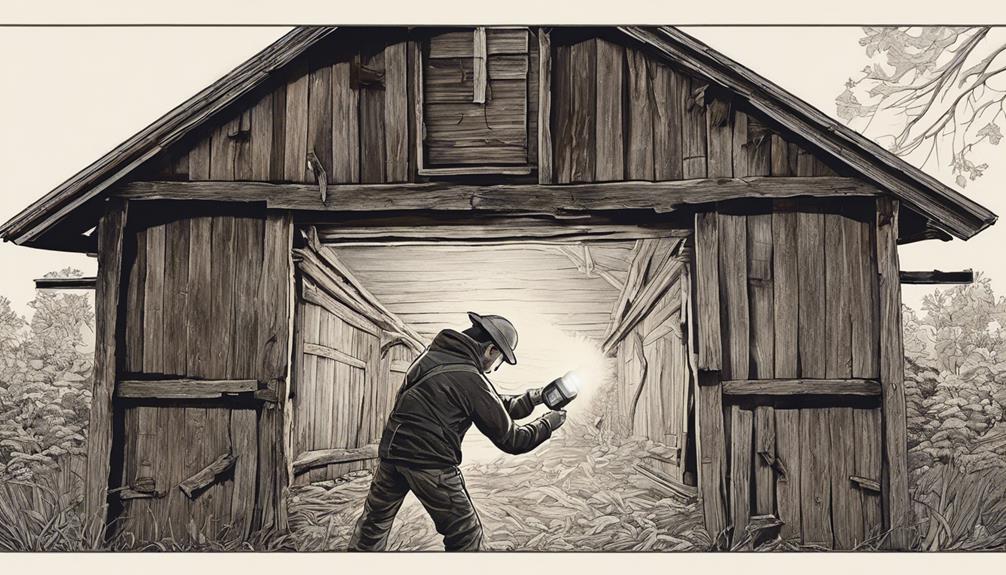
To ensure our safety and the structural soundness of the barn, we meticulously inspect for signs of rot, decay, or pest infestations in the beams, walls, and foundation. Checking the roof materials and wood frame is crucial for a secure living environment. Here are some key points to consider:
- Listen to the creaks and groans of the wood: Each sound tells a story of the barn's history, revealing its strength and vulnerabilities.
- Feel the texture of the beams: Run your hands along the wood to sense any roughness or soft spots that could signal decay.
- Smell the earthy scent of the barn: Take in the aroma of aged wood and hay, connecting with the barn's essence and integrity.
- Observe the play of light through the roof: Sunlight filtering through can highlight areas needing repair, showing where the structure may be compromised.
- Embrace the solid feel of the walls: Lean against them to feel their strength, appreciating the steadfast support they offer.
Designing the Barn Living Space
After ensuring the barn's structural integrity, our next step involves envisioning and creating a living space that seamlessly blends rustic charm with modern comforts. To make the most of the barn's layout, consider open floor plans and high ceilings for an expansive feel. Harness the beauty of natural light sources by incorporating ample windows and skylights, illuminating the interior and creating a warm atmosphere. Embrace the barn's roots by integrating rustic elements such as exposed beams and reclaimed wood, infusing the space with authenticity and coziness. For functionality and style, opt for sliding barn doors to separate different areas while adding a touch of charm. When selecting materials, prioritize durability and ease of maintenance with options like polished concrete floors or hardwood. The table below illustrates key design considerations for maximizing space and light in your barn living area:
| Design Aspect | Description | Benefit |
|---|---|---|
| Open Floor Plans | Create a spacious feel | Allows for additional space |
| Natural Light Sources | Incorporate windows and skylights | Brightens up the living space |
| Rustic Elements | Exposed beams, reclaimed wood | Adds charm and authenticity |
Implementing Essential Utilities
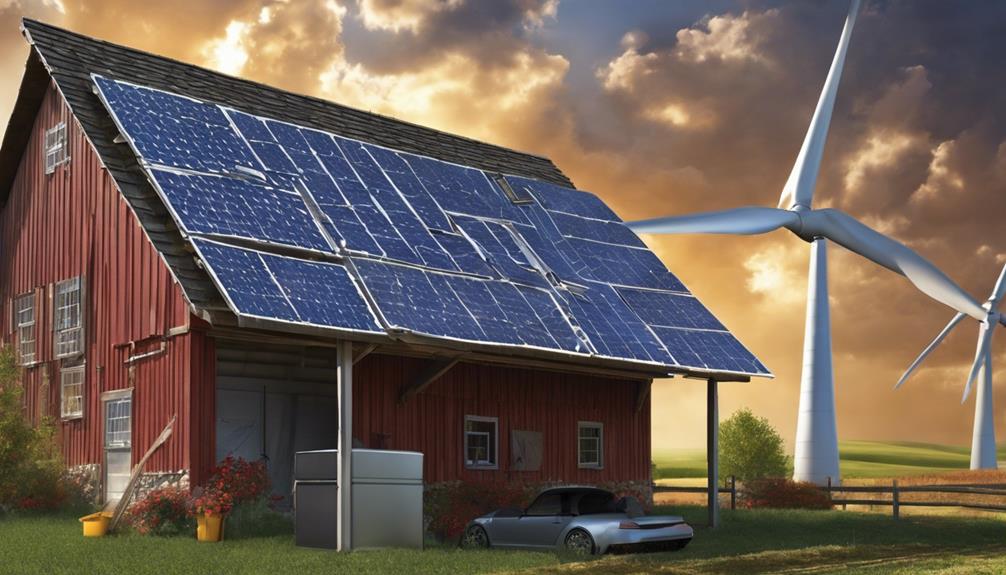
With our vision set on transforming the barn into a comfortable living space, our focus now shifts towards integrating essential utilities to ensure functionality and convenience. To make our barn home a haven, we must consider the following commonly used options available:
- Water Supply: Installing a well or connecting to a municipal water line for drinking, cooking, and cleaning needs.
- Electricity: Choosing between solar panels, generators, or grid connection for lighting, appliances, and power tools.
- Waste Disposal: Deciding on a septic system installation or connecting to a sewer line for proper waste management.
- Heating and Cooling: Exploring options like wood stoves, HVAC systems, or radiant floor heating for climate control.
- Internet and Phone: Setting up satellite internet or cable connections for communication and entertainment purposes.
Personalizing Your Barn Home
As we continue shaping our barn into a personalized living space, our next step involves infusing unique design elements and finishes that resonate with our individual style and preferences.
Personalizing our barn home doesn't have to break the bank; there are plenty of less expensive options to achieve a custom look. Consider adding a pop of color with vibrant paint choices or incorporating textures like reclaimed wood or metal accents for a rustic touch.
Customizing our barn home allows us to express our creativity and make it truly unique. From barn-style metal roofs to aluminum gutters and fascia caps, there are endless possibilities to add special touches that reflect our personality and lifestyle.
Frequently Asked Questions
How Do You Make a Barn Livable?
To make a barn livable, we focus on several key aspects:
Insulation: Insulating the walls and roof helps maintain a cozy temperature.
Plumbing and Electrical: Installing proper plumbing and electrical systems provides essential amenities.
Room Division: Separating rooms for different functions ensures functionality and privacy.
Windows: Installing windows allows natural light and fresh air to enter the space.
Furnishing: Furnishing the barn with furniture and appliances creates a comfortable living space.
Can a Person Live in a Barn?
Yes, we can live in a barn! With determination and creativity, a barn can transform into a cozy home. Imagine the freedom of wide open spaces within the rustic charm of a barn.
What Do I Need to Know Before Building a Barn?
Before building a barn, we need to understand local building codes for compliance.
Selecting stable ground with proper drainage is crucial. Site preparation involves clearing and leveling the area.
Digging a trench for the foundation, filling it with rods, crushed rock, and concrete ensures stability. A strong foundation is vital for structural integrity.
These steps are key in creating a durable and safe barn structure that meets regulations and serves its purpose effectively.
What Do I Need in a Barn?
In a barn, we need essential items like insulation, water, electricity, and a septic system. Proper ventilation is crucial to avoid mold and poor air quality.
Storage space is a must for organization. Safety features such as fire extinguishers and smoke detectors are vital.
Adding a kitchen, bathroom, bedroom, and living area enhances comfort. Our barn living space should be secure, organized, and equipped for our needs.
Conclusion
As we wrap up our journey into the world of barn living, it's clear that turning a barn into a home isn't just a dream but a reality waiting to be explored.
By following the steps outlined in this guide, one can transform a simple structure into a unique and personalized living space.
The theory that barns are only for animals has been debunked, showcasing the endless possibilities of creativity and innovation in home construction.
- About the Author
- Latest Posts
Introducing Ron, the home decor aficionado at ByRetreat, whose passion for creating beautiful and inviting spaces is at the heart of his work. With his deep knowledge of home decor and his innate sense of style, Ron brings a wealth of expertise and a keen eye for detail to the ByRetreat team.
Ron’s love for home decor goes beyond aesthetics; he understands that our surroundings play a significant role in our overall well-being and productivity. With this in mind, Ron is dedicated to transforming remote workspaces into havens of comfort, functionality, and beauty.
Architecture Home Styles
Top 3 Shingle Manufacturers for Quality Roofing Materials
Are you looking for the ultimate in quality roofing materials?
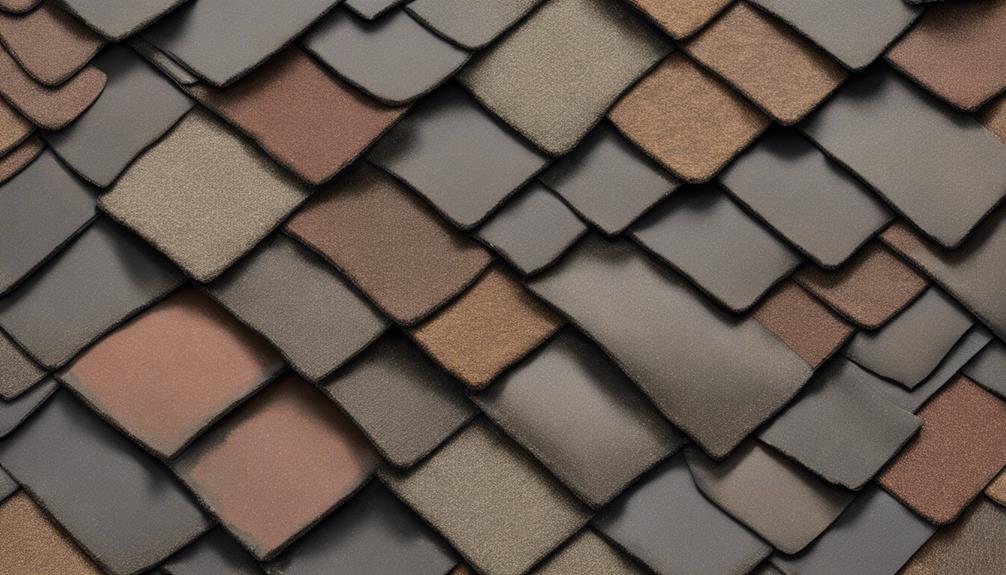
When it comes to choosing the best shingle manufacturer for your roofing needs, it’s important to prioritize durability, aesthetics, and overall performance. While many companies claim to offer quality materials, not all can live up to that standard. By researching customer reviews and industry ratings, you can determine which brands have a proven track record of excellence. Some of the largest shingle manufacturers in the industry have earned their reputations for consistent quality and innovation, making them dependable choices for homeowners and contractors. Selecting a reputable manufacturer will ensure that your investment provides long-lasting protection and visual appeal.
In the competitive market of roofing materials, three companies have consistently set themselves apart for their innovative products and reliable warranties. These top three shingle manufacturers have earned a reputation for excellence, but which one truly stands above the rest?
Let's explore the top choices for quality roofing materials to find out.
Key Takeaways
- Leading manufacturers like GAF, Owens Corning, and CertainTeed excel in quality roofing materials.
- Innovative shingle lines from Owens Corning, TAMKO, and Malarkey offer diverse options.
- Brands prioritize durability, sustainability, and regional suitability for residential roofing needs.
- Certification, warranties, and a commitment to excellence define these top shingle manufacturers.
Leading Shingle Manufacturers in the Industry
Leading the roofing industry are top-tier manufacturers such as GAF, Owens Corning, and CertainTeed, renowned for their exceptional quality roofing materials. These asphalt shingle manufacturers offer a wide range of shingle options, including architectural shingles that provide both durability and aesthetic appeal for residential and commercial properties.
Owens Corning, for example, not only boasts a rich history since 1938 but also showcases innovative shingle lines like the popular Duration FLEX, catering to diverse customer preferences.
Similarly, TAMKO, founded in 1944, stands out with its diverse shingles such as Titan XT and Heritage architectural shingles, meeting the demands for both style and performance in the roofing materials market.
Malarkey Roofing Products, headquartered in Portland, Oregon, focuses on sustainability in manufacturing and offers shingle lines like Highlander and Windsor, appealing to environmentally conscious consumers.
With IKO being the world's largest exporter of asphalt shingles, its variety of shingle options like Marathon Plus AR and Dynasty demonstrate a commitment to providing high-quality and diverse shingle solutions for roofing projects.
Top Choices for Quality Roofing Materials
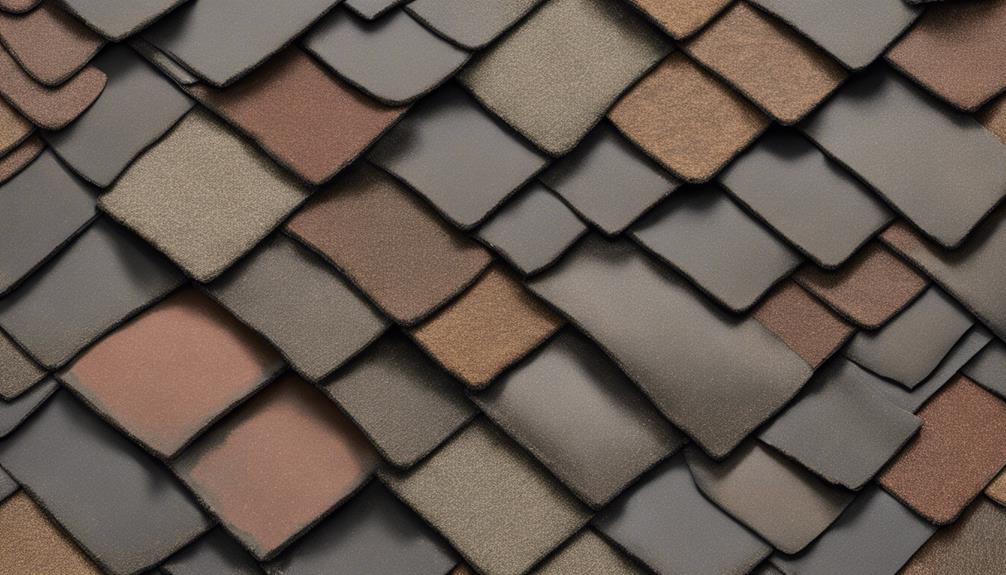
Among the top choices for quality roofing materials, several manufacturers stand out for their exceptional products and warranties. When considering top-tier manufacturers in the industry, GAF, Owens Corning, and CertainTeed are names that consistently deliver on quality and durability.
Here are three standout options from these reputable companies:
- GAF Timberline Roofing Shingles: GAF is renowned for its Timberline series, known for its durability and aesthetic appeal. Certification is required for enhanced warranty benefits, ensuring long-lasting protection for your roof.
- Owens Corning Duration FLEX: Owens Corning offers the innovative Duration FLEX line, providing a range of durable shingle options to suit different preferences and needs. These shingles are designed to withstand various weather conditions and maintain their quality over time.
- CertainTeed Grand Manor luxury shingle: CertainTeed stands out for its wide variety of styles and colors of asphalt shingles, including the luxurious Grand Manor line. These shingles offer both durability and elegance, making them a top choice for quality roofing materials.
Best Shingle Brands for Your Roof
We'll explore the top shingle brands renowned for their quality and durability in the roofing industry. GAF, Owens Corning, and CertainTeed stand out as leaders offering an array of shingle options that cater to various budgets and preferences. Owens Corning particularly shines by providing a range from budget-friendly to luxury shingles, all boasting high tensile strength and exceptional durability. These brands understand the importance of regional variations in climates and styles, ensuring that their shingles are suitable for diverse residential roofing needs.
When considering the best shingle brands for your roof, it's crucial to prioritize durability and quality. GAF, Owens Corning, and CertainTeed excel in meeting these criteria, making them top choices for homeowners looking for reliable roofing solutions. Whether you prefer budget-friendly options or seek the luxury of high-end shingles, these brands have you covered with their innovative products designed to withstand the test of time.
Frequently Asked Questions
What Is the Best Quality Roofing Shingles?
When it comes to the best quality roofing shingles, it's essential to consider factors like durability, design, and warranty.
Our team recommends shingles from GAF, Owens Corning, and CertainTeed for their exceptional quality and longevity. Each of these manufacturers offers a range of high-quality shingles with various styles and color options to suit different preferences.
These shingles are designed to withstand the elements and provide long-lasting protection for your roof.
What Is a Number 1 Shingle?
When it comes to roofing, a number 1 shingle signifies the pinnacle of quality and performance. These top-tier shingles boast exceptional durability, longevity, and protection against the elements.
Crafted by industry-leading manufacturers, number 1 shingles undergo rigorous testing and feature innovative technologies. Homeowners and contractors favor these shingles for their reliability and aesthetic appeal.
Investing in a number 1 shingle guarantees a high-quality roofing solution that delivers long-term value.
What Roof Shingles Last the Longest?
When it comes to roof shingles that last the longest, there are several top contenders in the market. These shingles, such as CertainTeed's Grand Manor, GAF's Timberline HDZ®, and Owens Corning's Duration FLEX, are known for their exceptional longevity with 50-year warranties.
The durability and reliability of these shingles make them stand out among other options, providing homeowners with peace of mind and long-lasting performance.
Which Shingles Are Best GAF or Owens Corning?
When comparing GAF and Owens Corning shingles, we find both manufacturers offer top-notch quality. GAF excels with its Timberline Roofing Shingles, requiring certification for enhanced warranty benefits.
On the other hand, Owens Corning's range includes the popular Duration FLEX line. Both companies provide 50-year warranties, ensuring long-lasting performance.
Consider factors like design, warranty, and performance to make the best choice between GAF and Owens Corning shingles.
Conclusion
In conclusion, when it comes to quality roofing materials, CertainTeed, GAF, and Owens Corning are the top choices in the industry.
With their durable and innovative asphalt shingles, these manufacturers offer a wide range of styles and colors to suit any home.
Did you know that combined, these three manufacturers hold over 60% of the market share in the roofing industry?
Their reputation for excellence and reliability makes them the go-to brands for homeowners looking for top-notch roofing materials.
- About the Author
- Latest Posts
Introducing Ron, the home decor aficionado at ByRetreat, whose passion for creating beautiful and inviting spaces is at the heart of his work. With his deep knowledge of home decor and his innate sense of style, Ron brings a wealth of expertise and a keen eye for detail to the ByRetreat team.
Ron’s love for home decor goes beyond aesthetics; he understands that our surroundings play a significant role in our overall well-being and productivity. With this in mind, Ron is dedicated to transforming remote workspaces into havens of comfort, functionality, and beauty.
-

 Vetted2 weeks ago
Vetted2 weeks ago15 Best Drip Irrigation Systems to Keep Your Garden Thriving
-

 Vetted4 days ago
Vetted4 days ago15 Best Sports Laundry Detergents for Keeping Your Activewear Fresh and Clean
-
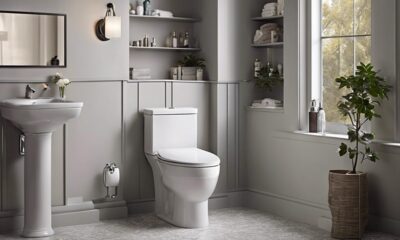
 Vetted6 days ago
Vetted6 days ago15 Best Tall Toilets for Seniors That Combine Comfort and Safety
-

 Vetted1 week ago
Vetted1 week ago15 Best Dish Scrubbers to Keep Your Kitchen Sparkling Clean
-

 Beginners Guides3 weeks ago
Beginners Guides3 weeks agoDesigning Your Retreat Center – Essential Tips
-
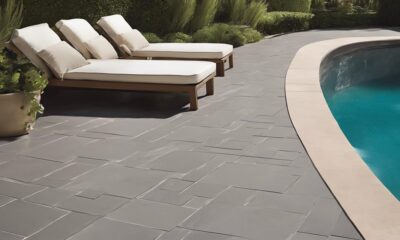
 Vetted4 weeks ago
Vetted4 weeks ago15 Best Tile Adhesives for Outdoor Use – Top Picks for Durable and Weather-Resistant Installations
-

 Beginners Guides3 weeks ago
Beginners Guides3 weeks agoAre Retreats Profitable
-
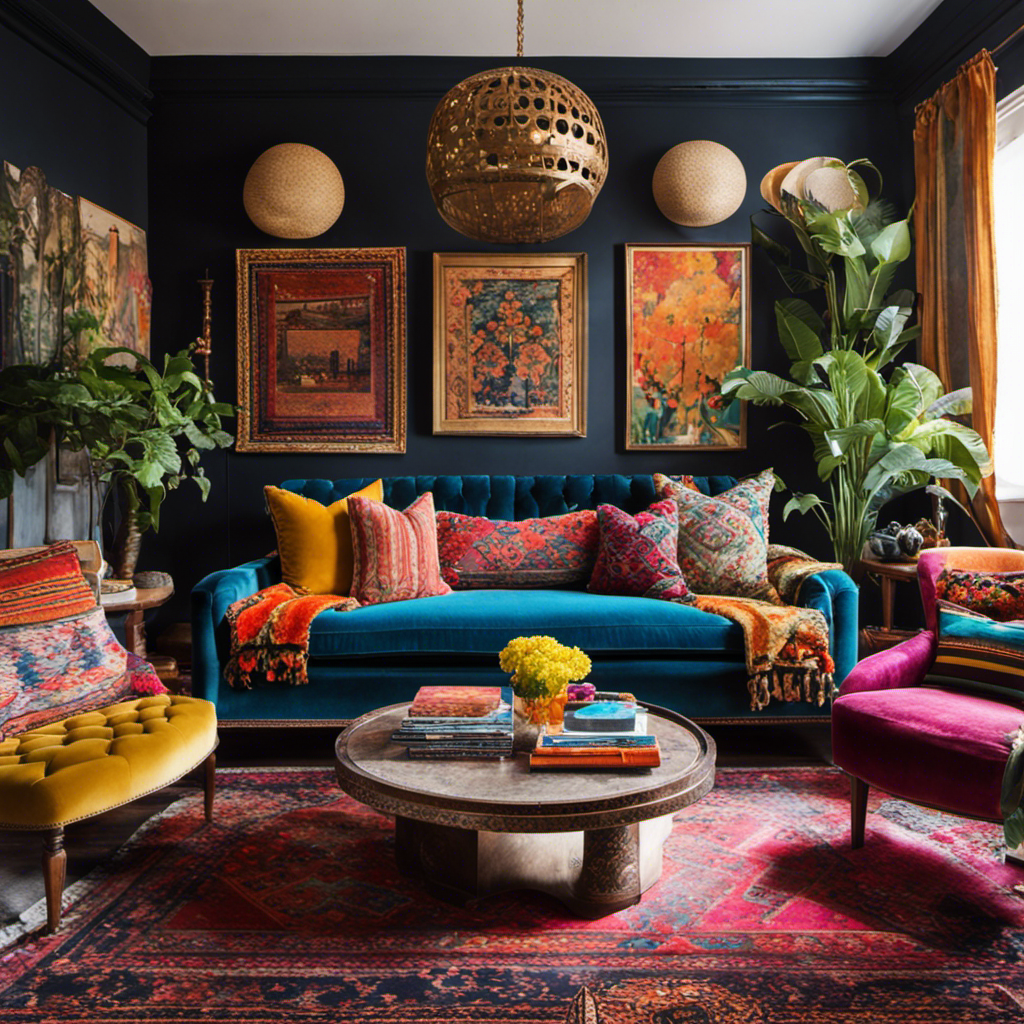
 Decor1 week ago
Decor1 week agoWhat Is Eclectic Home Decor




